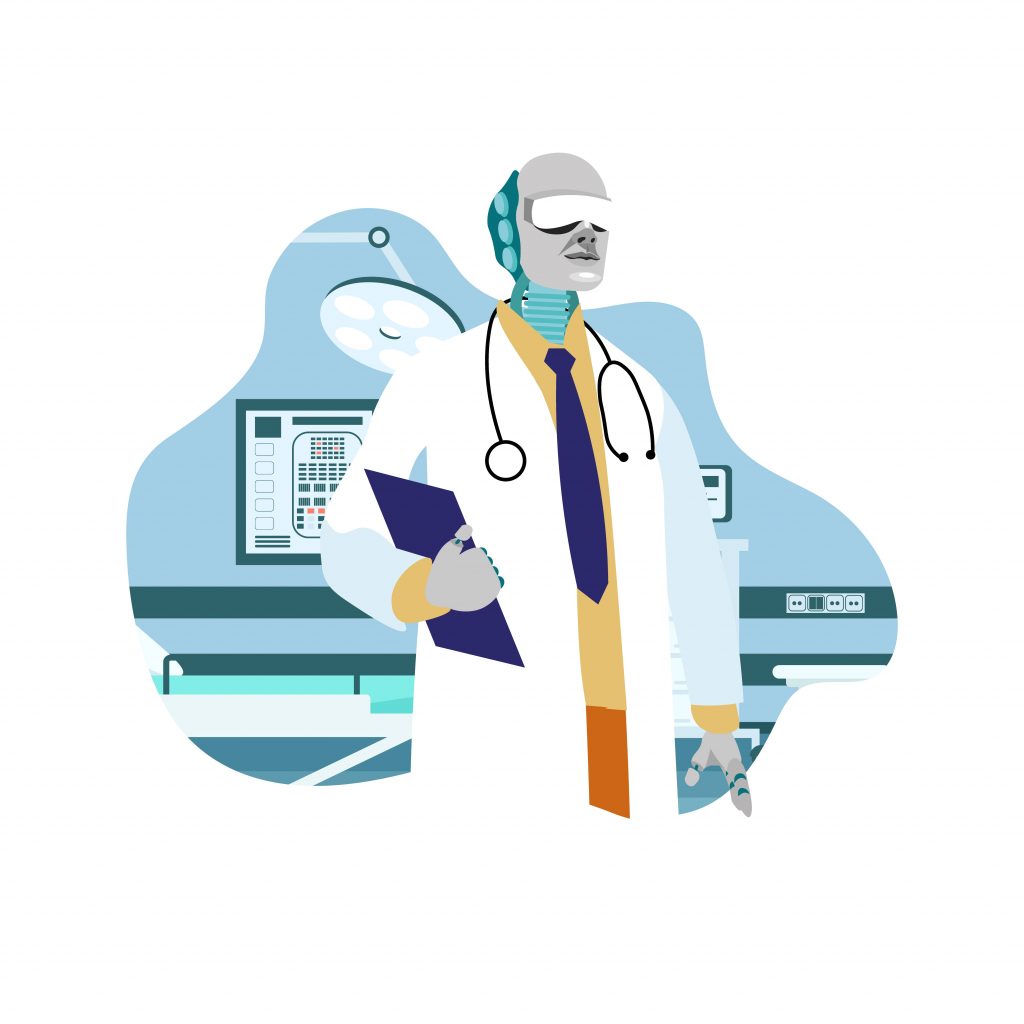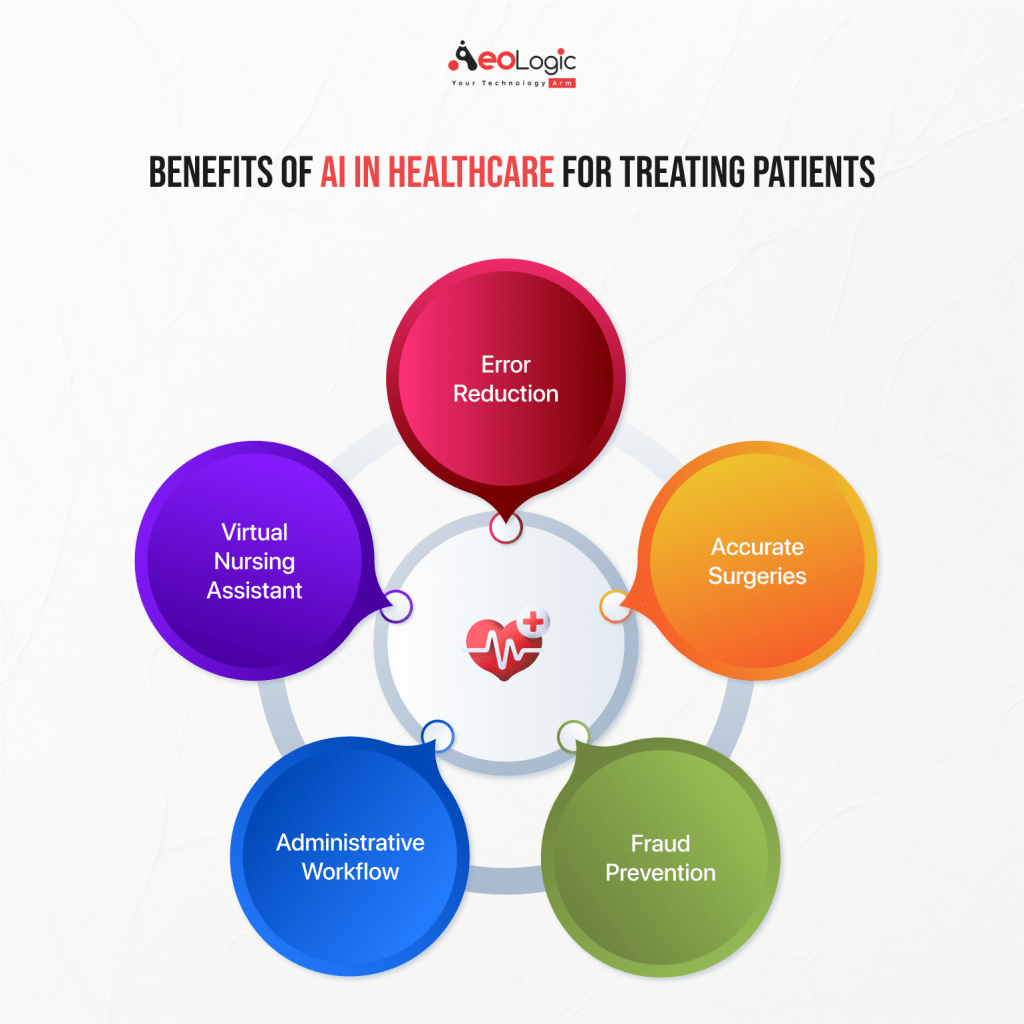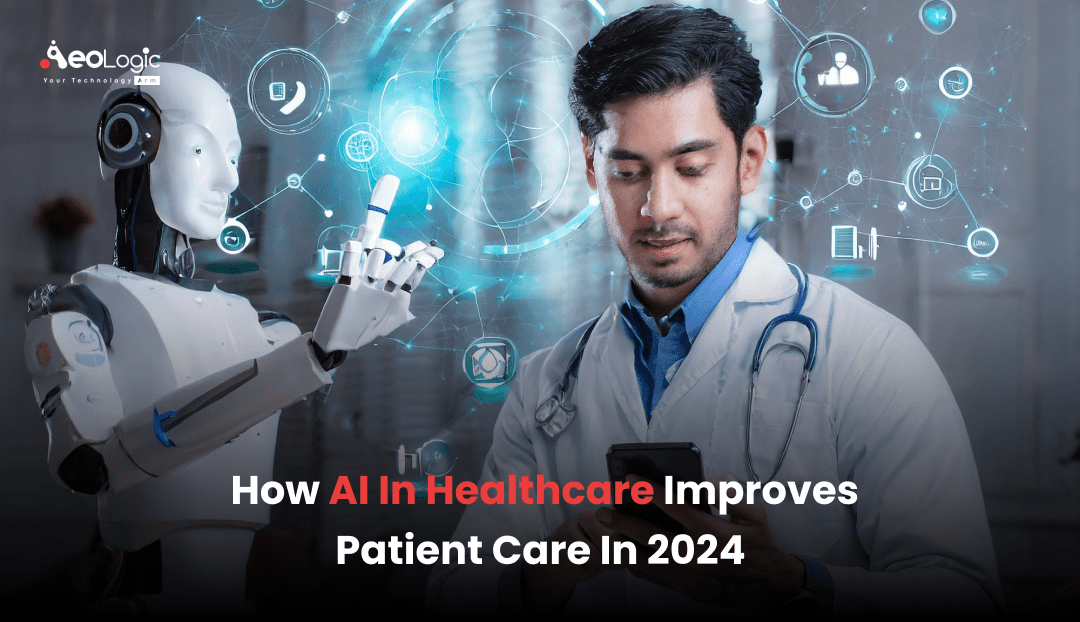The healthcare industry is the backbone of the world and is responsible for treating patients and making life better for illnesses. There are many hospitals, clinics, trauma centers, etc that contribute to the treatment of patients of different conditions. However not having proper facilities and moving with conventional treatment methods leads to a lot of inconvenience for the treatment of patients and many of them lost their lives due to this. A WHO report shows that around 1 in every 10 patients is harmed in health care and more than 3 million deaths occur annually due to unsafe care.
To make treatment better in 2024 and enhance the healthcare industry, there is a need for something new that can easily adapt to the modern world. Artificial intelligence can be a tool that is just not sufficient but has immense capability to make treatment better than ever. Even AI is contributing to the healthcare industry in many corners of the world. A report shows that by 2030, the market for AI in healthcare is projected to reach $187.95 billion. By 2026, the market for robot-assisted surgery may be worth $40 billion.
In this article, we will see the impact and role of AI in making the healthcare industry better in 2024 so that patients can get better treatment facilities. This would help save lives that are lost due to improper care of patients. We will also go through many details about AI for the healthcare industry.
What is Artificial Intelligence in Healthcare?
The term “artificial intelligence” (AI) in the healthcare industry can refer to th

e application of machine-learning algorithms and software to make contributions to the analysis, presentation, and comprehension of complex medical and healthcare data, or to outperform human capabilities by offering novel approaches. AI in healthcare can change treatment in 2024 as it can save valuable time and can improve faster decision-making that overall makes a positive impact on patients’ conditions.
Also Read: Why Is Digital Transformation Important In The Healthcare Industry?
Top Features of AI in Healthcare in Treating Patients
Artificial intelligence is a new tool developed by a lot of research, many algorithms, many combinations of languages, etc. With all involvement of aspects, it possesses many characteristics, as here are a few key characteristics mentioned below.
Predictive Capability
In the healthcare industry, many diseases cannot be detected in their earlier stage, and when detected till is too late. AI has the characteristic to predict the disease with the help of symptoms that are provided as output in the data form. This enables the treatment of patients before the time.
Integration with other technology
Integration is another ability of Artificial intelligence that makes it more adaptive to things. Artificial intelligence can integrate with other technology like IoT to make treatment more enhancive. IOT-based devices can help to detect diseases whereas AI can help to analyze the diseases and provide treatment solutions.
Automation
Artificial intelligence has the capability of automating repetitive processes as there are many repetitive tasks in healthcare for example diagnosis of disease via machines, AI can make a system automate to process the diagnosis reduce the labor, and make employees work on other complex tasks.
Also Read: How IoT Solutions Are Changing The Face Of Healthcare Industry
Benefits of AI in Healthcare for Treating Patients

Having incredible ability or characteristics of Artificial intelligence, there can be a lot of benefits in healthcare of AI. Here are a few benefits mentioned below.
Error Reduction
Many crucial medicines have to be followed strictly but sometimes there could be dosage errors. Those errors can be detected by an AI-powered program that runs in the background on the patient’s computer, much like a Wi-Fi router. This will reduce the dosage miss and make consistency in treatment.
Accurate Surgeries
Many surgeries involve sensitive organs. Sometimes the doctor becomes panicked or nervous and makes a mistake that causes loss of blood, infection, or post-surgery pain to the patients. AI-powered robots can operate those critical surgeries as they cannot panic or nervous.
Fraud Prevention
Most people have insurance that they can claim during critical conditions. But this insurance claim sometimes turns to fraud as patients make unusual or suspicious patterns in insurance claims or unnecessary tests under insurance claims that overall make losses for the healthcare industry. Implementing AI can identify unusual claims and also always process details about the patients and what type of insurance they have.
Administrative Workflow
In the healthcare industry, there is a lot of paperwork that takes a lot of time and reduces the interaction time between patients to the employees. With Artificial intelligence automation, repetitive tasks can be performed easily, freeing up employee time for other activities and giving them more face-to-face time with patients.
Virtual Nursing Assistant
Artificial intelligence can enable a virtual nursing assistant as a chatbot that can answer those questions that are often asked by nursing staff. This can be used to help answer questions about medications, forward reports to doctors or surgeons, and help patients schedule a visit with a physician.
Applications of AI in Healthcare in 2024
Artificial intelligence has some immense abilities and benefits that can produce some incredible use cases. There are many applications of AI in healthcare nowadays, as there are a few important applications of Artificial intelligence in healthcare in 2024 mentioned below.
To help you comprehend the quickly expanding field, we’ve compiled a list of examples and use cases for AI in healthcare.
AI for Medical Diagnosis
Every year, around 400,000 hospitalized patients experience unnecessary injury, resulting in 100,000 fatalities. Given this, improving the diagnostic process is one of AI’s most interesting healthcare applications. Incomplete medical histories and high caseloads can result in fatal human errors. AI is immune to these influences, allowing it to forecast and diagnose diseases faster than most medical personnel.
AI for Drug Discovery
The medication development industry is hampered by rising development costs and research that requires thousands of human hours. Each drug’s clinical trials cost an estimated $1.3 billion, and only 10% of those treatments are successful in reaching the market. AI is speeding up this process by assisting with drug creation, anticipating side effects, and selecting optimal candidates for clinical trials.
AI for Patient Experience
AI can be utilised to augment digital communications by providing patients with scheduling reminders, targeted health suggestions, and suggested next steps. AI’s ability to aid in health diagnosis enhances the pace and accuracy of patient visits, resulting in faster and more personalized care. And by efficiently offering a seamless patient experience, hospitals, clinics, and physicians may serve more patients on a daily basis.
AI for Healthcare Data Management
Highly useful information can sometimes go lost in a forest of trillions of data points. Furthermore, the inability to connect key data points impedes the development of new medications, preventative medicine, and accurate diagnosis. AI’s capacity to manage enormous amounts of data allows it to break down data silos and connect information that would otherwise take years to process. This can save time and money on healthcare administrative processes, resulting in more efficient everyday operations and patient experiences.
AI for Robotic Surgery
Hospitals use artificial intelligence and robots to assist with everything from less invasive treatments to open heart surgery. Surgeons can control a robot’s mechanical arms from a computer interface while the robot displays a three-dimensional, enlarged picture of the surgical site. The surgeon then directs the other team members, who collaborate closely with the robot throughout the operation. Robot-assisted operations have resulted in fewer surgery-related problems, reduced discomfort, and faster recovery times.
Also Read: The Role of Information Technology in Healthcare
Challenges with AI for Healthcare
We have seen the characteristics, benefits, and some key applications of AI in healthcare but some challenges could be faced by healthcare providers while implementing AI. Here are a few important challenges mentioned below.
- Lack of transparency of AI can be a challenge as it is difficult to understand on what basis AI made a decision. This made doctors and healthcare professionals trust AI.
- Data bias can also be a concern in implementing AI in healthcare as improper or inaccurate data can produce very strange and inaccurate results from expectations. As the healthcare industry deals with lives, it is a serious concern.
- Security can be a risk factor of AI as data saved on the cloud protected by AI algorithms can be breached and cause data loss to the wrong hands. So this is also a serious concern.
Final Words
AI implementation is necessary for efficient medical decision-making and health service management in the healthcare sector. Encouraging early acceptance and continuous deployment in the healthcare system is a difficulty. There are some challenges also with AI but that can be avoided with some awareness and mindful decisions. Overall, AI holds the key to unlocking a magnificent future in the healthcare industry that will be an incredible thing for patients.
Aeologic Technologies is at the forefront of these innovations, supplying insights and solutions that harness the electricity of IT in healthcare.







